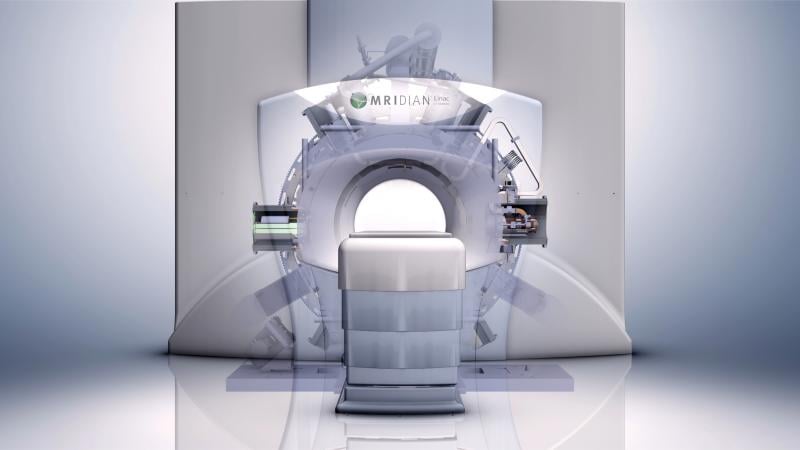WEBINAR: Pancreatic Cancer Outcome Highlights via On-table Adaptive MR-guided Radiation

The webinar "Pancreatic Cancer Outcome Highlights via On-table Adaptive MR-guided Radiation" was presented by Parag Parikh, BSE, M.D., associate professor of radiation oncology and biomedical engineering at Washington University in St. Louis, and Percy Lee, M.D., associate professor and vice chair of education for the Department of Radiation Oncology at the David Geffen School of Medicine at UCLA and the UCLA Jonsson Comprehensive Cancer Center. They will share their ongoing experience in using MR-guided radiation therapy to treat pancreatic cancer.
The webinar took place Tuesday, Oct. 24, 2017.
This presentation includes highlights of significant outcomes and treatment protocols currently used with their patients. The webinar will compliment the presenters' poster published at ASTRO17, “Higher Maximum Biologic Effective Dose Utilizing Adaptive MRI Guided Radiation Therapy Improves Survival of Inoperable Pancreatic Cancer Patients," which provided a retrospective review of 42 locally-advanced pancreatic cancer patients treated at four institutions:
- Washington University and Siteman Cancer Center at Barnes-Jewish Hospital, St. Louis
- University of California, Los Angeles Health System and Jonsson Comprehensive Cancer Center
- University of Wisconsin Carbone Cancer Center in Madison
- VU University Medical Center in Amsterdam, Netherlands
The study found that stereotactic dosing regimens guided by MR imaging using the MRIdian system and daily online adaptation had led to significantly prolonged patient survival and resulted in favorably low toxicity.
Presenters:
 Percy Lee, M.D.
Percy Lee, M.D.
Associate Professor Vice Chair, Education Director, Stereotactic Body Radiation Therapy Program
David Geffen School of Medicine at UCLA , UCLA Jonsson Comprehensive Cancer Center
Dr. Lee is an associate professor and vice chair of education for the Department of Radiation Oncology at the David Geffen School of Medicine at UCLA and the UCLA Jonsson Comprehensive Cancer Center. Lee is the clinical director of the stereotactic body radiation therapy (SBRT) program and the chief of service for the thoracic and GI radiation cncology programs in the department. He also serves as the residency training program drector as well as the director for the medical student clerkship. Lee attended the Johns Hopkins University and graduated with the highest honors majoring in biomedical engineering with a concentration in chemical engineering. He attended Harvard Medical School and the Harvard-MIT Health Science and Technology Program where he received his M.D., and graduated magna cum laude. At Harvard, he was also a Howard Hughes Medical Institute fellow. He interned at the Massachusetts General Hospital and received specialty training in radiation oncology from Stanford University School of Medicine.
 Parag Parikh, BSE, M.D
Parag Parikh, BSE, M.D
BSE Associate Professor of Radiation Oncology
Washington University School of Medicine in St. Louis
Parag Parikh, BSE, M.D. is an associate professor of radiation oncology and biomedical engineering at Washington University in St. Louis. He serves as the chief of the gastrointestinal radiation oncology service at Washington University School of Medicine – Barnes Jewish Hospital - Siteman Cancer Center. He sees 400 new patients with pancreatic, liver, rectal and anal cancers per year. He has been routinely using MR-guided radiation therapy for three years, and will be coordinating a multicenter trial with UCLA and other institutions that looks at high dose radiation delivered with MR-guided radiation therapy to treat pancreatic cancer.
About ViewRay
ViewRay Inc. (Nasdaq: VRAY) designs, manufactures and markets the MRIdian radiation therapy system. MRIdian integrates MRI technology, radiation delivery and proprietary software to locate, target and track the position and shape of soft-tissue tumors during radiation. ViewRay believes this combination of enhanced visualization and accuracy will significantly improve outcomes for patients.
ViewRay and MRIdian are registered trademarks of ViewRay Inc.


 August 09, 2024
August 09, 2024 








